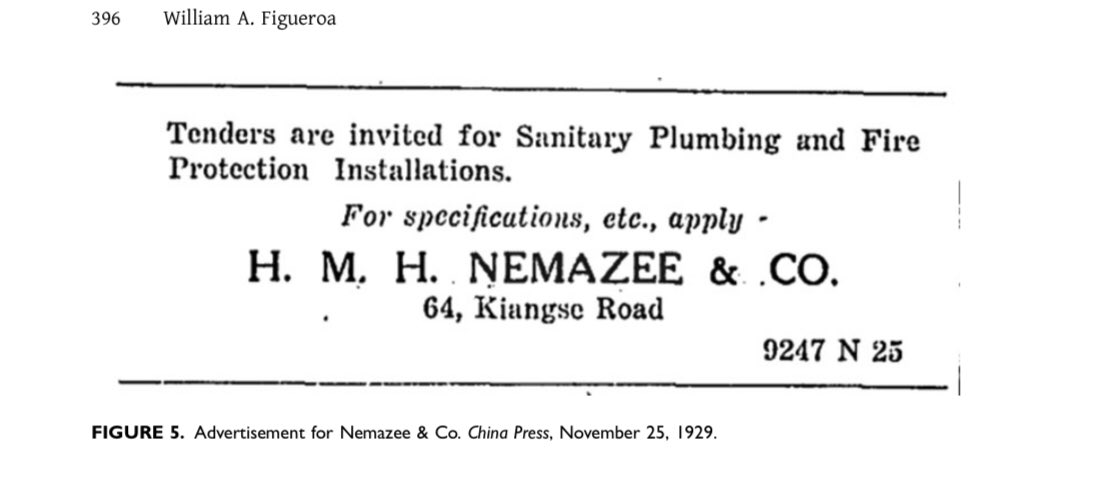Yesterday, #Chinese Foreign Minister Wang Yi put forth a Four-Point Proposal for peace in the #Israel-#Palestine conflict.
Why this "plan" offers nothing new and on #China's use of rhetorical support for #Palestinians
(Or, why do I have such a sense of deja vu?)
a thread🧵1/
Why this "plan" offers nothing new and on #China's use of rhetorical support for #Palestinians
(Or, why do I have such a sense of deja vu?)
a thread🧵1/

Wang’s comments resurrected the Four-Point Proposal made by Xi Jinping in 2017, which itself was a repackaging of the Four-Point Plan for Peace of 2013. While the language has varied, the content has remained the same. All 3 versions endorse the international consensus... 2/ 

...that calls for a two-state solution based on the 1967 borders with East Jerusalem as the capital of the Palestinian state, condemn human rights violations and aggression on both sides, calls for an end to the Gaza blockade, and call for mediated negotiations. 3/ 

Mohammad al-Sudairi has argued that these calls are all “within the framework of the global consensus and the principles accepted and voiced by the “moderate” Arab camp” and exhibits an “essentially conservative disposition” towards the conflict.
merip.org/2016/01/chinas…
4/
merip.org/2016/01/chinas…
4/
These earlier attempts all failed to strike a chord. Although Mahmoud Abbas is fond of trips to China, Palestinians are unlikely to see the Chinese as a neutral partner due to their close relationship with Israel. Israel imports more goods from China than anywhere else... 5/ 

...while China is the second-largest importer of Israeli products. Their bilateral trade stands at ~$15 billion. While just a drop in the bucket of China’s total trade, Israel has historically been an important source of military tech that the U.S is unwilling to share... 6/ 

According to a report from the U.S-China Security Review Forum, as of 2010 “Israel ranks second only to Russia as a weapons system provider to China and as a conduit for sophisticated military technology, followed by France and Germany.” 7/ 

This relationship has often drawn the ire of the United States, which occasionally pressures Israel. Most recently, the U.S prevented Israel from selling advanced AWACS aircraft to China. But despite this, the tendency has been to share technology. 8/ eurasiantimes.com/israels-push-t…
Israel has also been seen as the “R&D lab” of China in recent decades. China and Israel have hosted many reciprocal business events that facilitate cooperation between Chinese and Israeli firms, usually with Israel providing technology to an established Chinese company... 9/ 

Starting in 2016, Chinese investors became especially interested in online businesses based in Israel’s “Silicon Wadi,” which offers less regulation than its US counterpart. These companies bring advanced technology and experience to these projects to meet needs in China... 10/ 

...which local firms then borrow and integrate. While again, US pressure sometimes prevents important connections from materializing – most recently by blocking Israel’s use of Huawei 5G tech – the relationship has been steadily trending upwards. 11/ reuters.com/article/us-isr…
In short, the Four-Point Plan is a rehash of the international consensus, with no real chance of bringing either the Israelis or the Palestinians to the negotiating table. China’s interests in maintaining positive relations with Israel preclude it from offering anything... 12/
that will threaten the status quo. Any progress would be contingent on Israel agreeing to allow China to act as a mediator, which it has every incentive to avoid. When Xi Jinping offered to mediate a meeting between Abbas and Netanyahu during a state visit in 2013... 13/
...Netanyahu unsurprisingly sidestepped the offer in favor of discussing economic issues and China’s relationship with Iran.
In short, China's support for the Palestinians is essentially diplomatic tool. While an important part of their engagement with the Arab world...14/
In short, China's support for the Palestinians is essentially diplomatic tool. While an important part of their engagement with the Arab world...14/

China only needs to embrace the international consensus to win the support of the Arab states, which are themselves content to make only just enough noise about Palestine to satisfy their populations. 15/
For more on the history of these ties, and China's anti-Israel rhetoric between 1955 and the early 1990s, have a look at this thread:
https://twitter.com/IranChinaGuy/status/1395048935958499331?s=20
• • •
Missing some Tweet in this thread? You can try to
force a refresh








